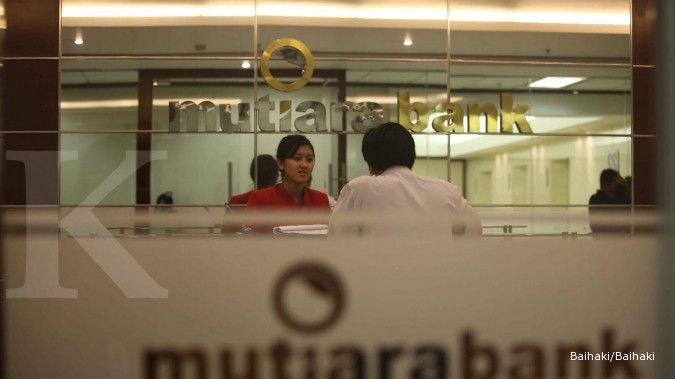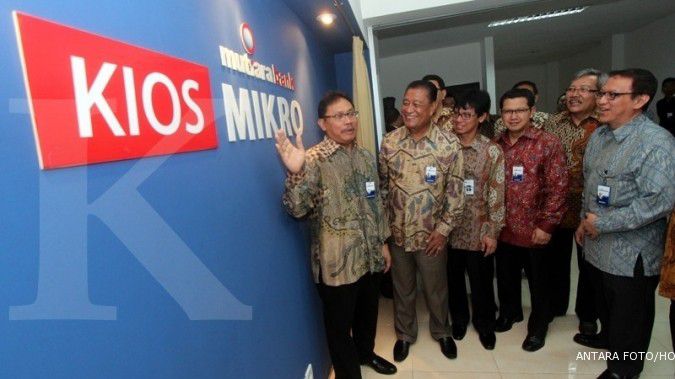JAKARTA. Lawmakers grilled the Deposit Insurance Corporation (LPS) over the auction of Bank Mutiara — formerly Bank Century — during a hearing at the House of Representatives on Monday.
The lawmakers, who are members of House Commission XI on banking and finance, questioned the entire auction process that was completed exactly six years after the bank was bailed out in 2008.
Among the issues that emerged during the hearing were the selection of Japanese firm J Trust as the new owner of Mutiara and the reason behind state lender Bank Rakyat Indonesia’s (BRI) decision to quit the auction before it reached the final stage.
One lawmaker, Andreas Eddy Susetyo of the Indonesian Democratic Party of Struggle (PDI-P), regretted the fact that Mutiara “fell into the hands of a foreign entity”, while Gerindra Party lawmaker Haerul Saleh said he could not comprehend BRI’s reason for withdrawing from the auction.
Commenting on it, LPS executive director Kartika “Tiko” Wirjoatmodjo said his office treated all parties interested in the auction equally, whether they were foreign or local entities.
“There were only six investors that reached the due diligence stage during the auction. They were J Trust from Japan, Hong Leong Bank from Malaysia, Bank of China, China Highland Capital Management, BRI and Artha Graha from Indonesia,” he said.
However, according to Tiko, the Bank of China and J Trust were the only ones to submit final bids.
“BRI was still committed to the process, but it decided to withdraw its participation after accessing our data room and Mutiara’s internal data during the due diligence,” Tiko said.
J Trust was then announced the winner of the auction and it acquired Mutiara for Rp 4.41 trillion (US$351.13 million), below the Rp 6.7 trillion bailout price tag.
Tiko defended LPS’ move, saying that it was allowed to sell the bank below the bailout price in the sixth year, according to the LPS Law.
Meanwhile, Andreas insisted on knowing the actual amount the government spent to rescue the bank, citing the Rp 1.25 trillion additional capital that the LPS injected into Mutiara in December 2013.
LPS chairman C. Heru Budiargo acknowledged that the bank, when its name was Century, had Rp 9.1 trillion in accumulated losses based on a November 2008 audit.
“It had Rp 12 trillion in total assets in 2008 and its capital was at minus Rp 6.7 trillion. The capital injected into the bank eventually exceeded Rp 6.7 trillion because we had to make its capital standing positive again,” he said.
Both Tiko and Heru assured the lawmakers that the government was working to retrieve Century’s assets through a Swiss court, with at least $156 million that it could potentially recover.
“J Trust and LPS have reached an agreement that any retrieved assets would belong to the government,” Tiko said.
Meanwhile, in the meeting, Tiko reiterated LPS’ intention of including two new options -- bridge bank and purchase and assumption -- in the upcoming draft of the financial system safety net (JPSK) bill to complement the existing open bailout option.
Under the bridge bank resolution, the LPS would transfer healthy assets and third-party funds of an insolvent bank to a newly established entity. It would then liquidate the ailing bank -- along with its bad assets-- and sell the new entity to a new shareholder.
On the other hand, with the purchase-and-assumption system, the LPS would be able to sell the healthy assets of a troubled bank to another lender, which would then assume the bank’s liabilities. Following the sale, customers of the former would automatically become the latter’s.
“Hopefully we can submit the final draft [to the House] in the first quarter,” he said. (Tassia Sipahutar)
Lawmakers grill LPS over Bank Mutiara auction
January 21, 2015, 03.20 PM
/2014/05/16/2142107363.jpg)
ILUSTRASI. Manfaat biji adas untuk kesehatan tubuh.
Source: The Jakarta Post
| Editor: Hendra Gunawan
Latest News
-
March 02, 2026, 10.49 AM
Bank Indonesia Monitoring Market Movements in Response to Conflict in Middle East
-
February 25, 2026, 08.28 PM
Inpex to Solicit Bids for Construction of Indonesia's Abadi LNG Project in Mid-2026
-
February 24, 2026, 03.38 PM
Eni to Reach Final Investment Decision for Indonesia Gas Projects Next Month
-
February 24, 2026, 01.00 PM
Asia Stocks Try to Steady after Wall Street Selloff Sims Mood
-
February 23, 2026, 04.50 PM
Wall Street Futures and Dollar Slide on Trump Tariff Tumult
-
February 23, 2026, 02.17 PM
Indonesia's Government Spending Jumps 26% in January 2026
-
February 23, 2026, 01.47 PM
Indonesia's Government Spending Jumps 26% in January
-
February 21, 2026, 06.00 AM
Indonesia's Pertamina to Maintain Bidding Process for US Energy Imports
-
February 20, 2026, 01.23 PM
Indonesia Secures 19% Tariff Deal with US, Palm Oil and Other Commodities Exempt











